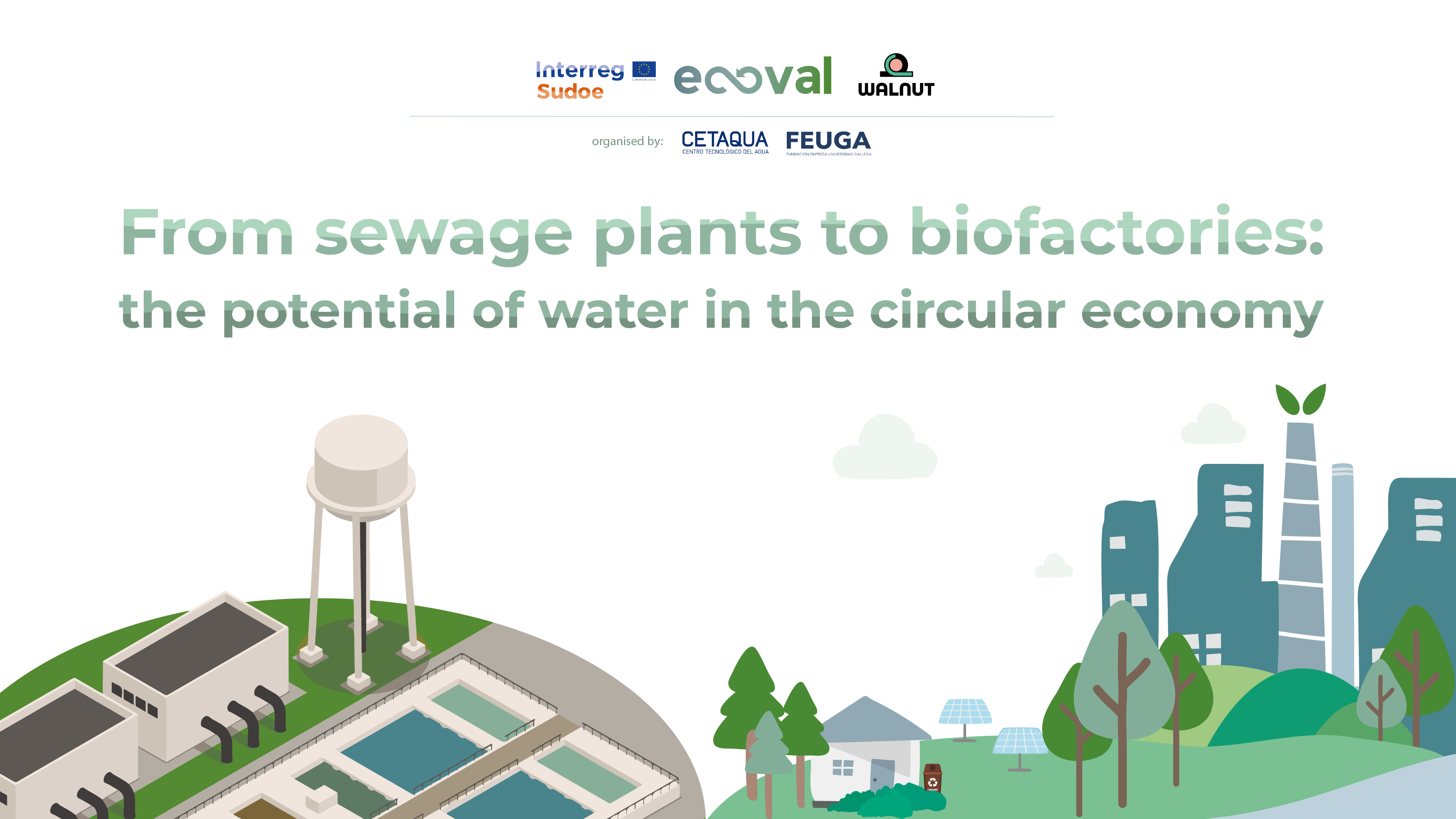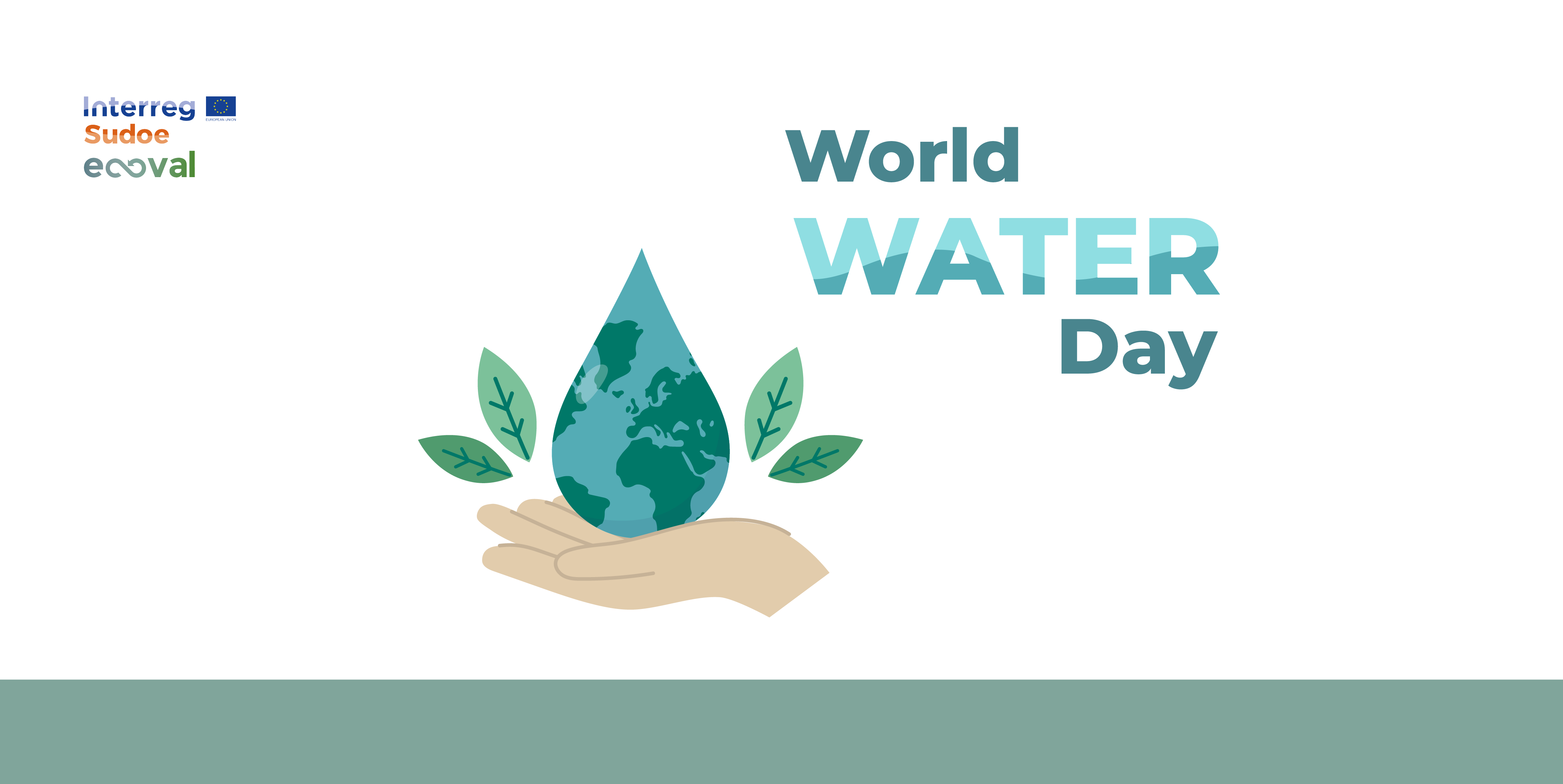After the postponement in January, the event “From wastewater treatment plants to biofactories: the potential of water in the circular economy“, organised by Cetaqua and FEUGA in the framework of the innovation projects Ecoval Sudoe and WALNUT, is back. It will take place on 7 April in both on-site and online formats.
This meeting aims to explore the concept of biofactories and present the technical advances of both projects. In addition, the social, legal, and market barriers for the valorisation of high added value products for agriculture and industry, such as sludge or biofertilisers obtained from waste flows from urban water treatment plants, will be discussed.
Here you can consult the full programme of the event, which runs from 10:00 to 17:00, with presentations and round tables to reflect on the essential value of water in the transition to a circular economy. The blocks in which the day is divided are:
- Block I: past, present and future of biofactories.
- Block II: legislative/transfer barriers to the implementation of biofactories.
- Block III: end-users of biofactory by-products.
- Final block: round table.
After a morning of debate and participation, there will be a break for lunch and at 15:30 there will be a visit to the Ourense biofactory, where you can learn about the different water treatment processes.
The event will also be broadcast on Zoom with English translation. The capacity of both the on-site and virtual event is limited, and registration will close when the maximum number of participants is reached. Don’t miss out, register here!



